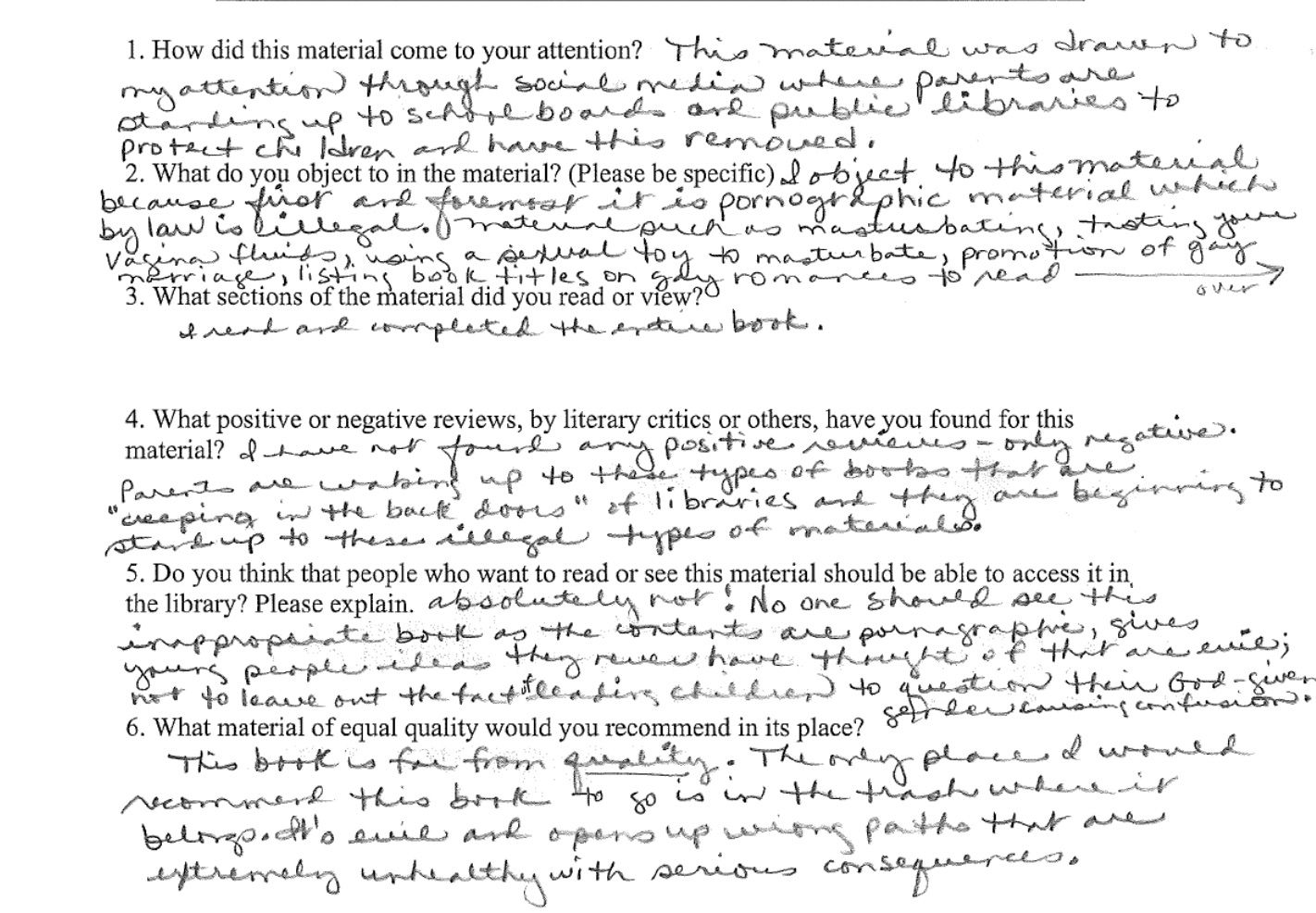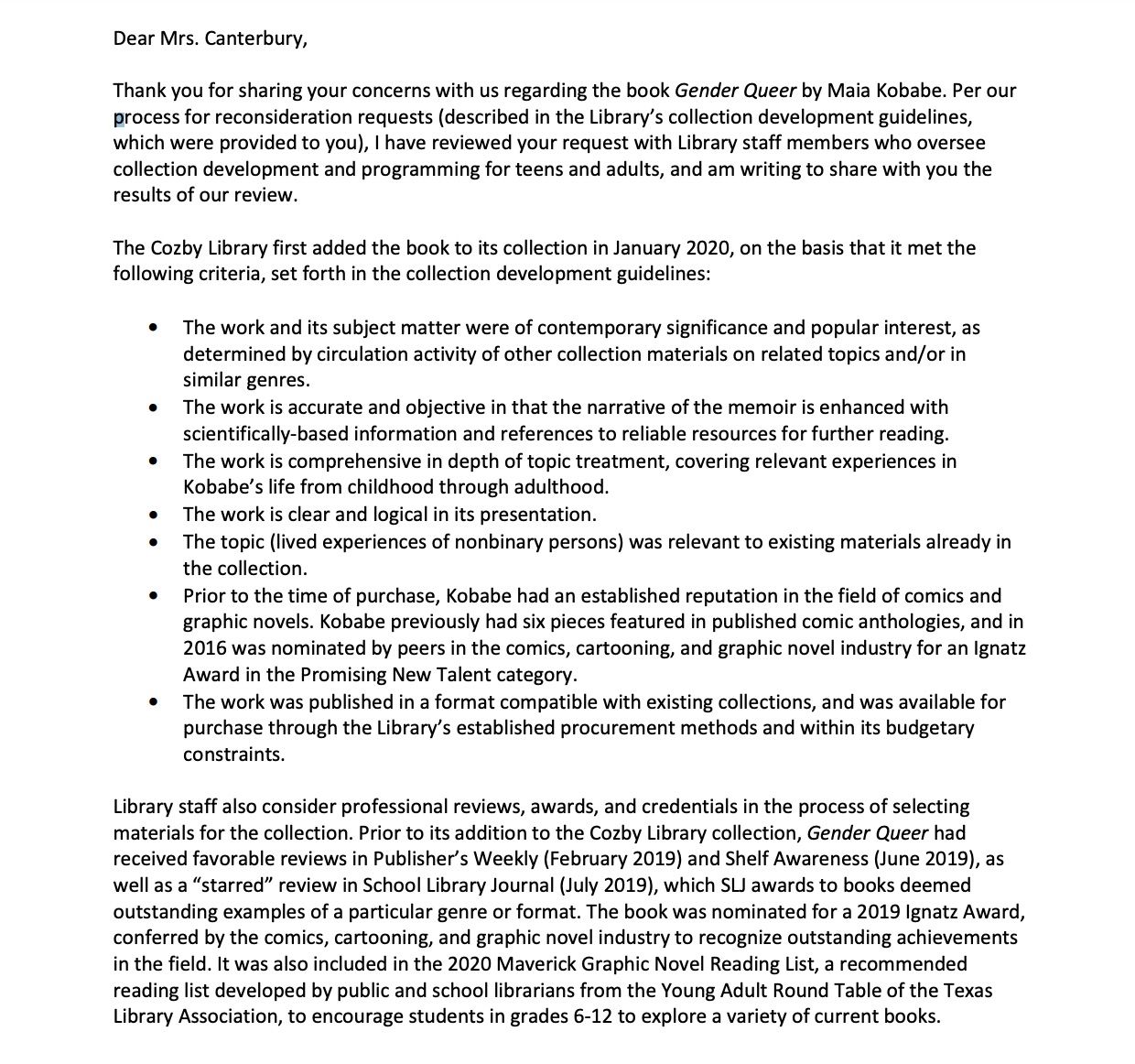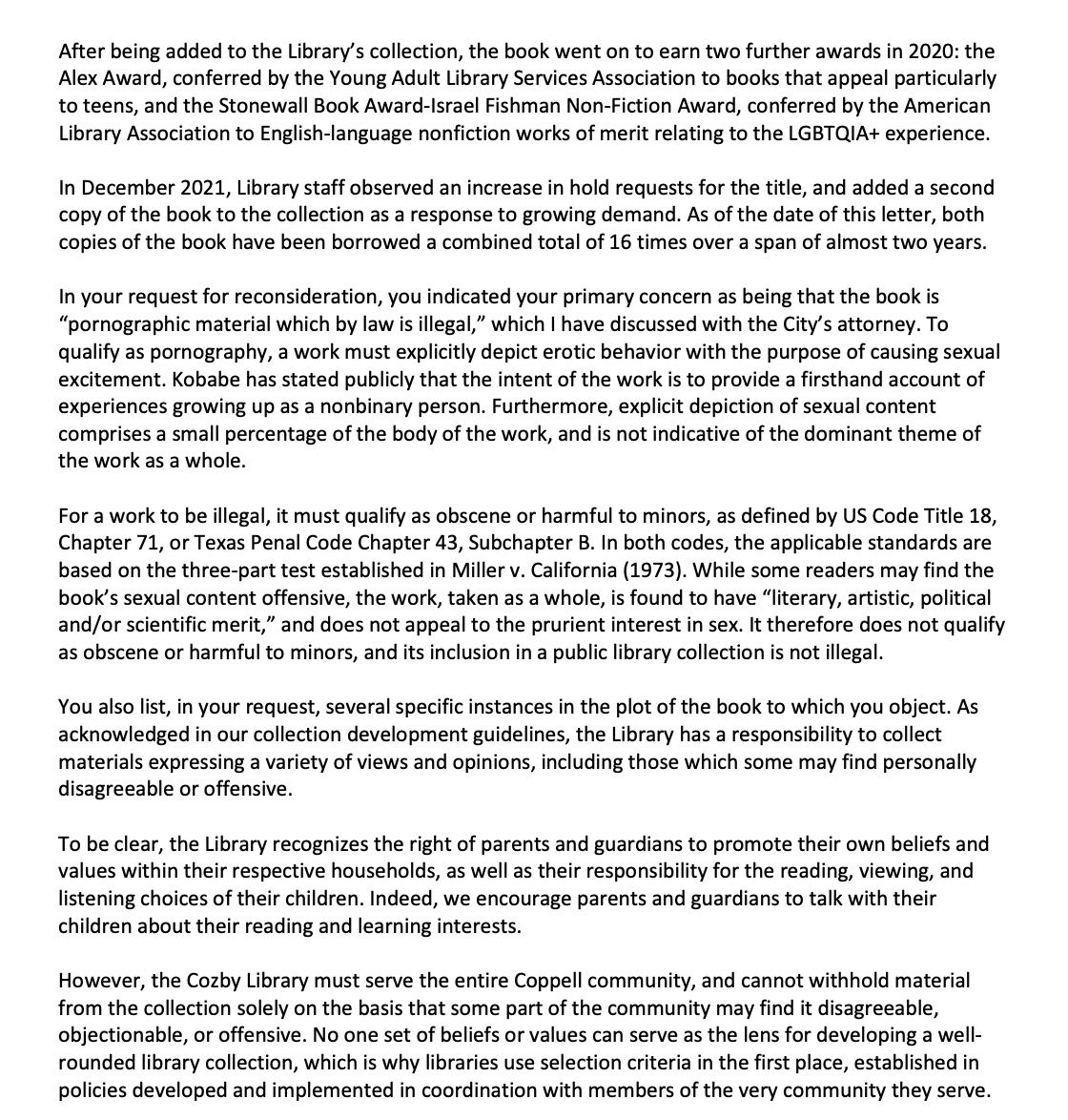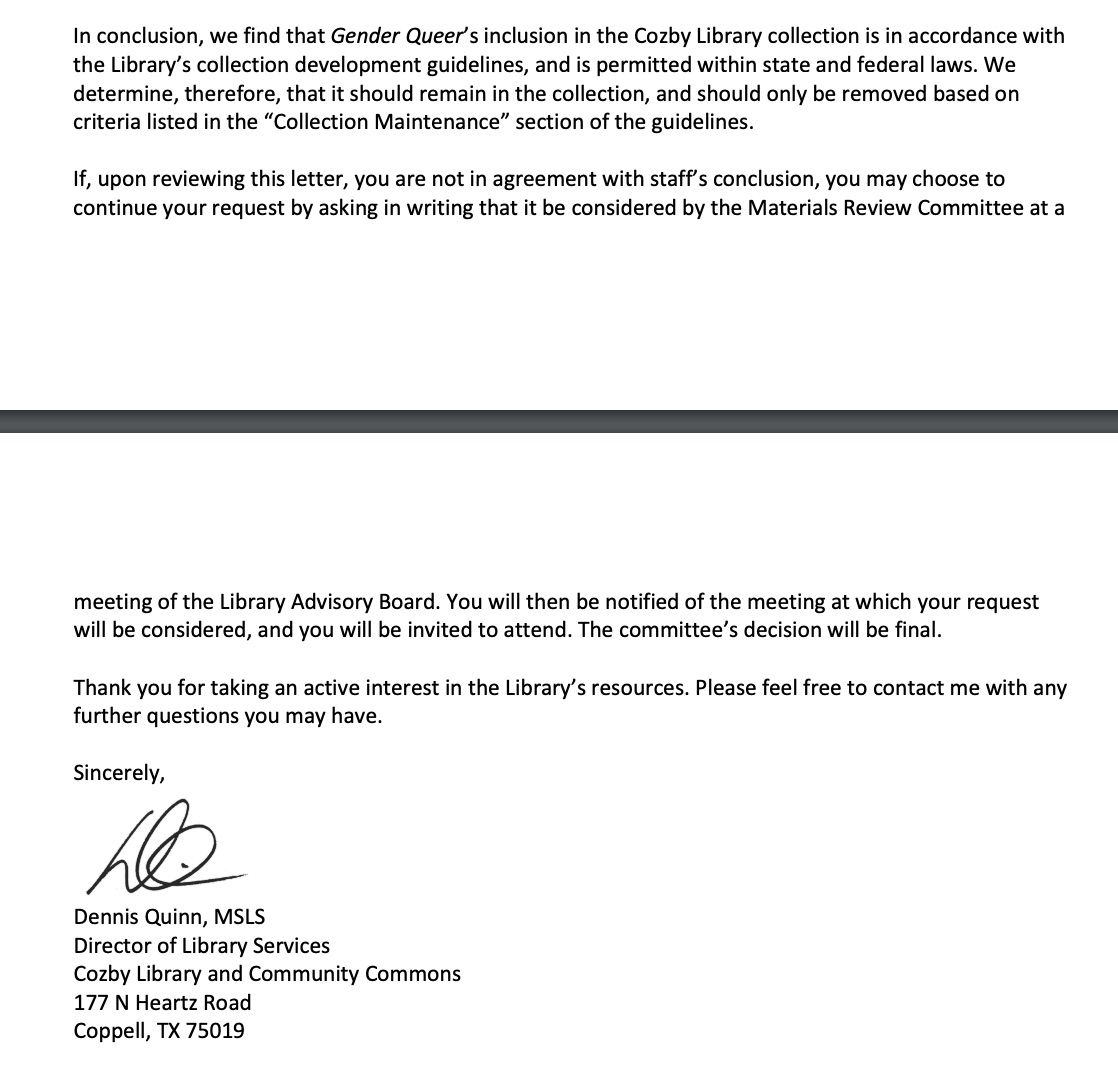The Cozby Library and Community Commons in Coppell, Texas, has a reconsideration on the docket for their library board meeting Thursday, February 10. Gender Queer had a formal complaint filed against it by a “concerned citizen” in early January.
It’s not a surprise by now that Maia Kobabe’s graphic memoir has been under fire across the country, nor is it a surprise many of these challenges, both in public schools and in public libraries come through coordinated efforts. Indeed, in this case, the person who filed the complaint laid out the typical talking points — the book is pornographic and pornography isn’t legal in Texas — but they made it clear that their decision to file a complaint came because of seeing people talk about the book being a problem on social media.
Here’s the complaint in full, minus identifying details about the individual. This is worth seeing, as it’s a solid example of the language and talking points censors like to use. If it’s easier to download as a .pdf, the file is publicly available on the Coppell government website.


There’s not an especially strong case for this complaint, but because part of the library’s reconsideration process involves a discussion at the library board meeting at the request of the person who filed reconsideration form, it’s on the agenda.
Upon receipt of the complaint, the Cozby library director, Dennis Quinn, send what might be the most ideal response for a book challenge. This is an outstanding model for any library finding themselves in a similar position. It, too, is available for download via the Coppell government website.



Quinn’s letter is a model for how libraries should be preparing for and responding to complaints. Utilize the lists of books being most frequently targeted right now, build your file of book reviews and awards those titles have earned, and create a template email like the one above for response. It’ll take some work on the front end to do this, but having the capacity to create your defense and decision-making in such a nuanced, thoughtful, referenced style is key to protecting intellectual freedom. It’s also crucial for making your point that materials in collections are meant to serve an entire community and not just one part of it.
Coppell’s library board includes a discussion of the complaint on Thursday at 7pm Central. If you’re in the Coppell area, take a few minutes before then to send a letter to the director, Dennis Quinn (dquinn@coppelltx.gov), who serves as the liaison to the library board. Let Quinn and the board know that keeping Gender Queer in the public library is the right decision.
For more ways to take action, use this toolkit for how to fight book bans and challenges, as well as this guide to identifying fake news. Then learn how and why you may want to use FOIA to uncover book challenges.





